Installation
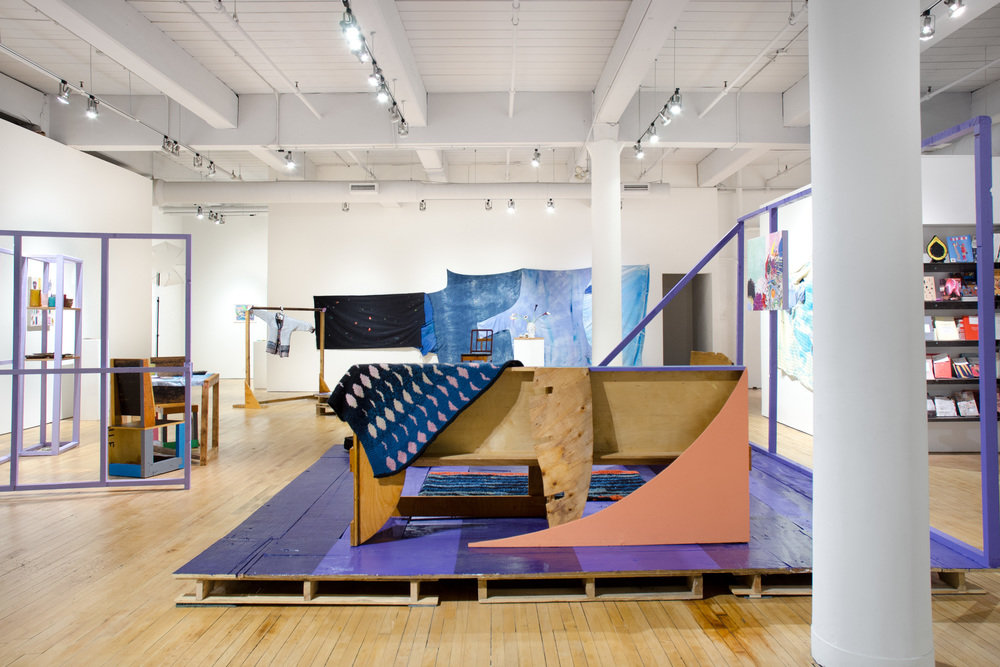
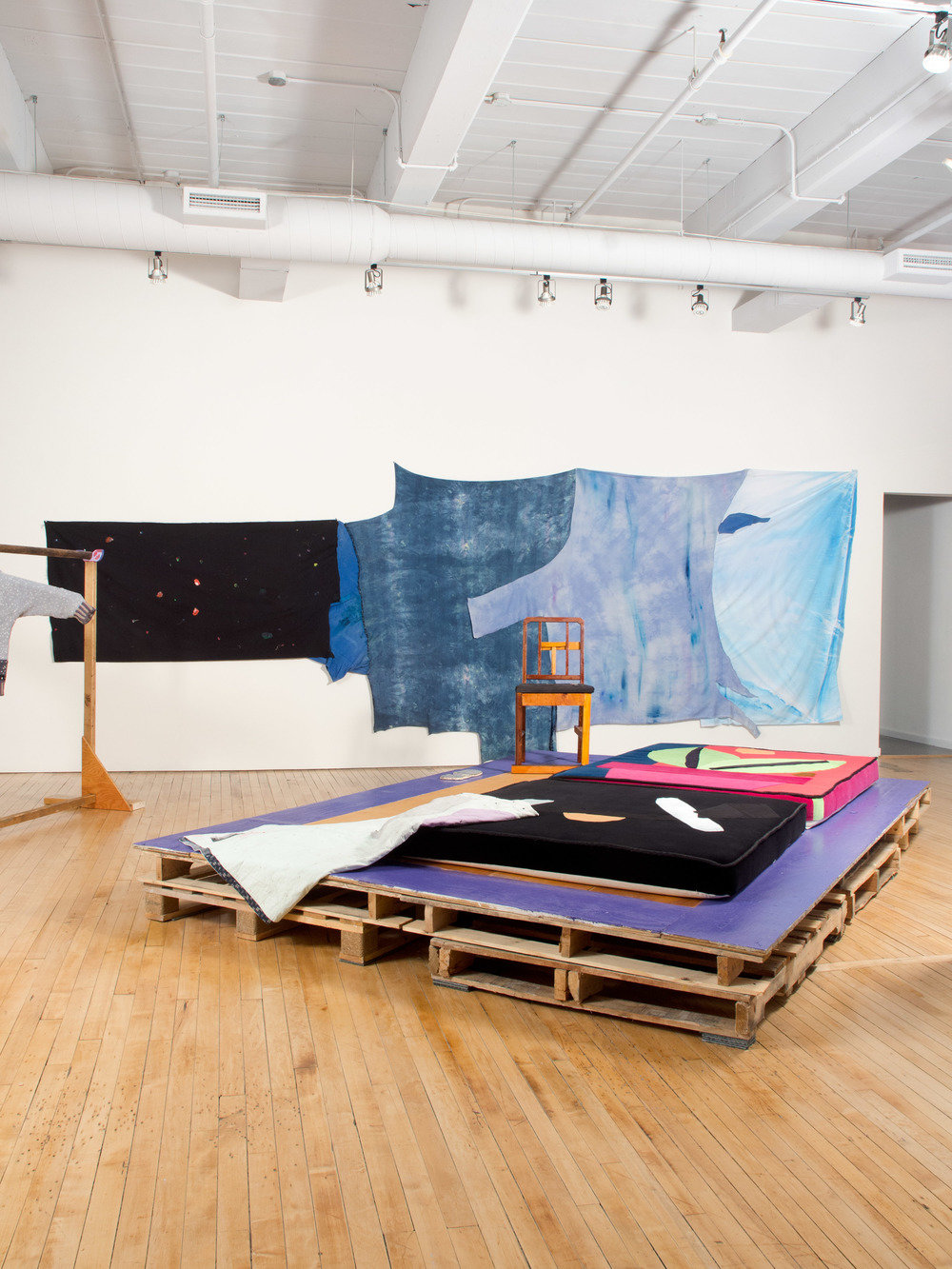
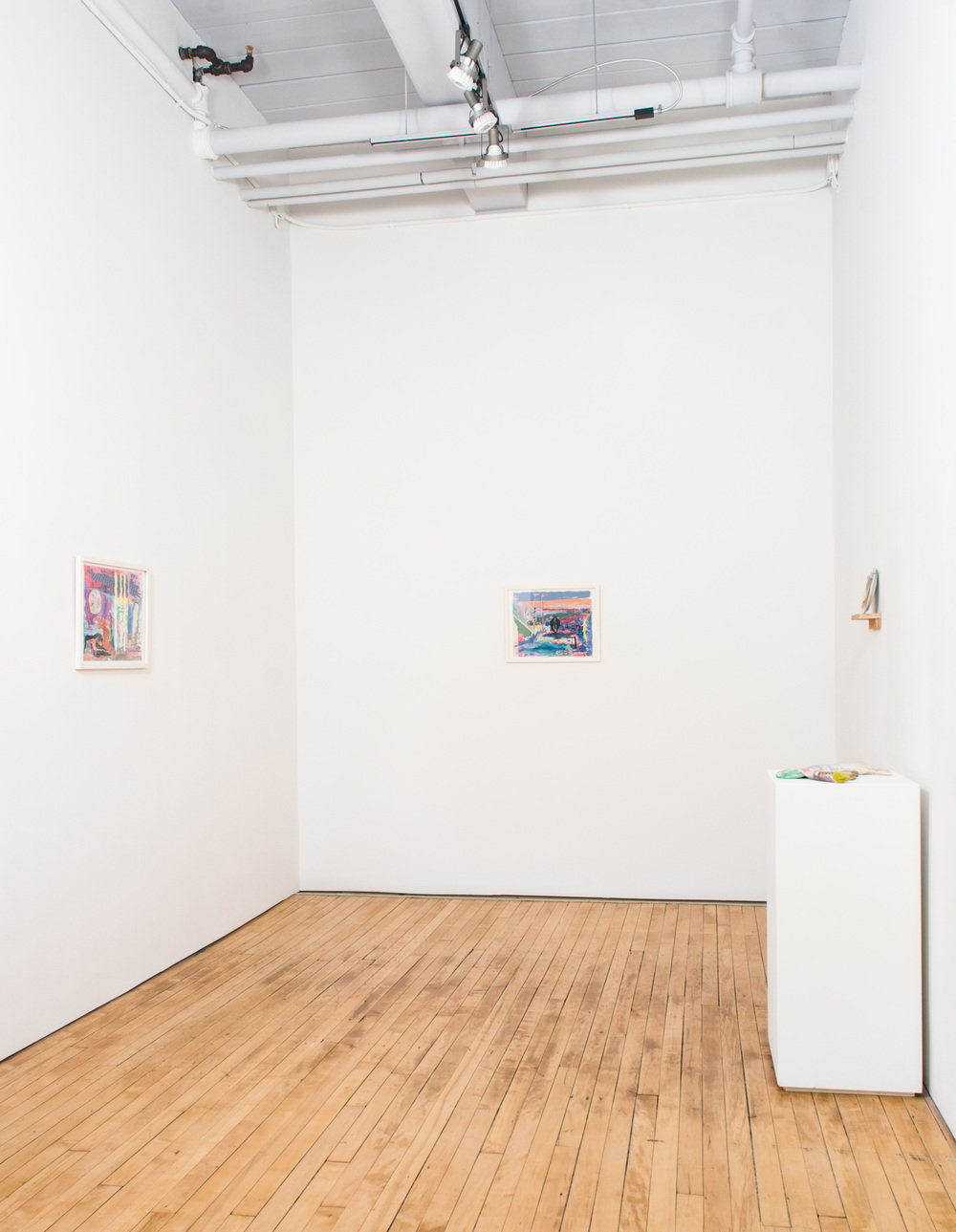
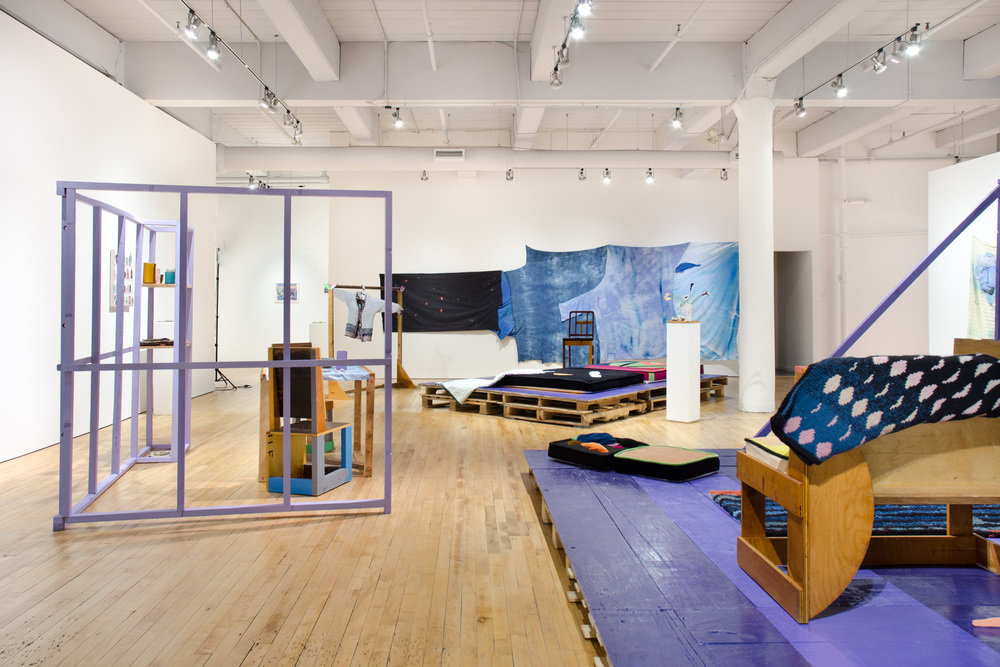
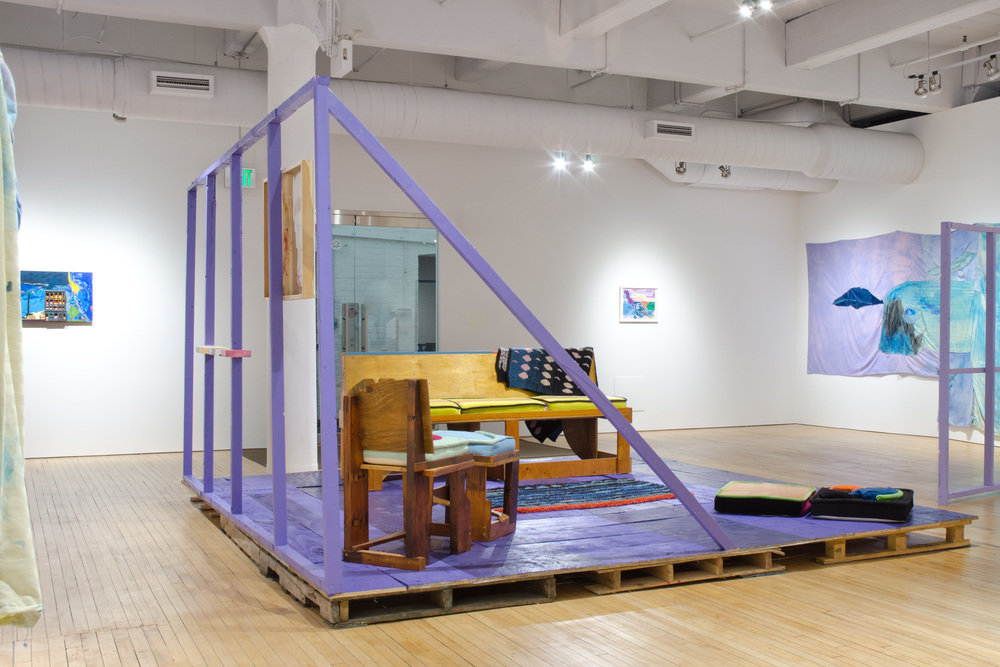
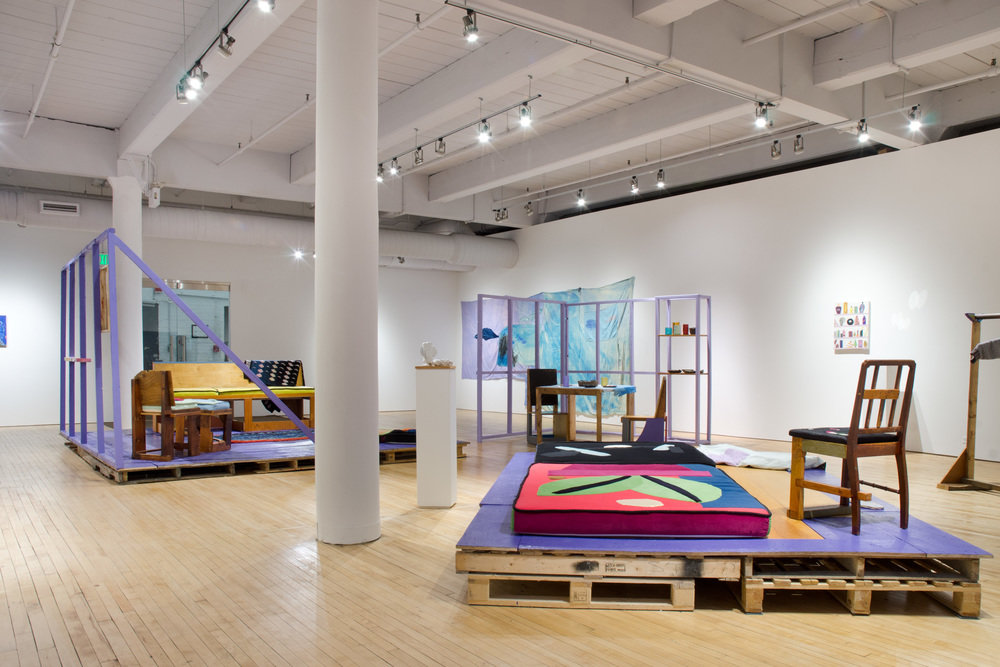
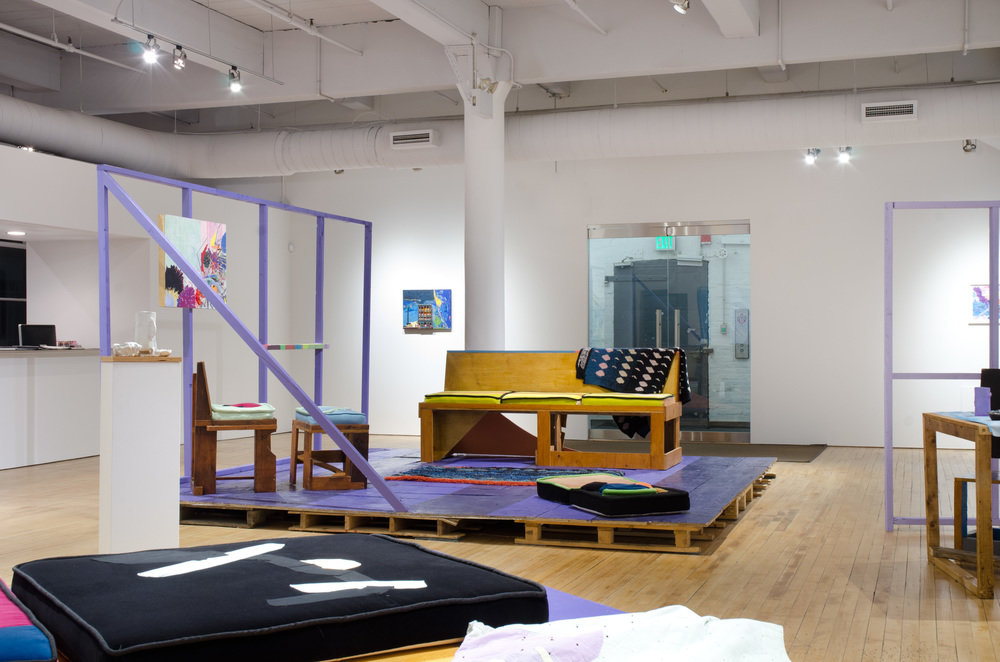
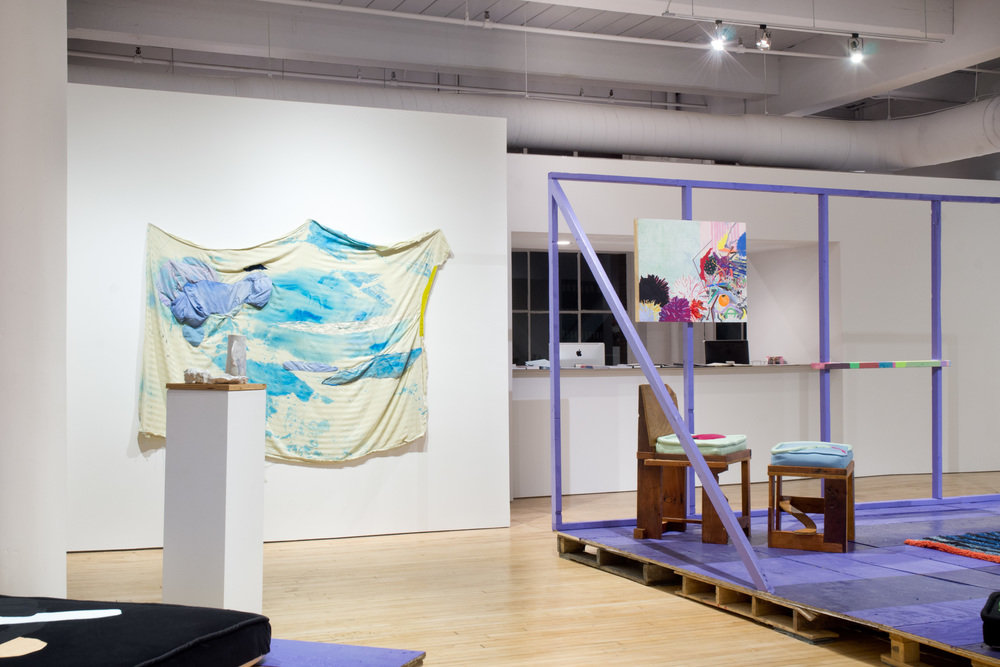
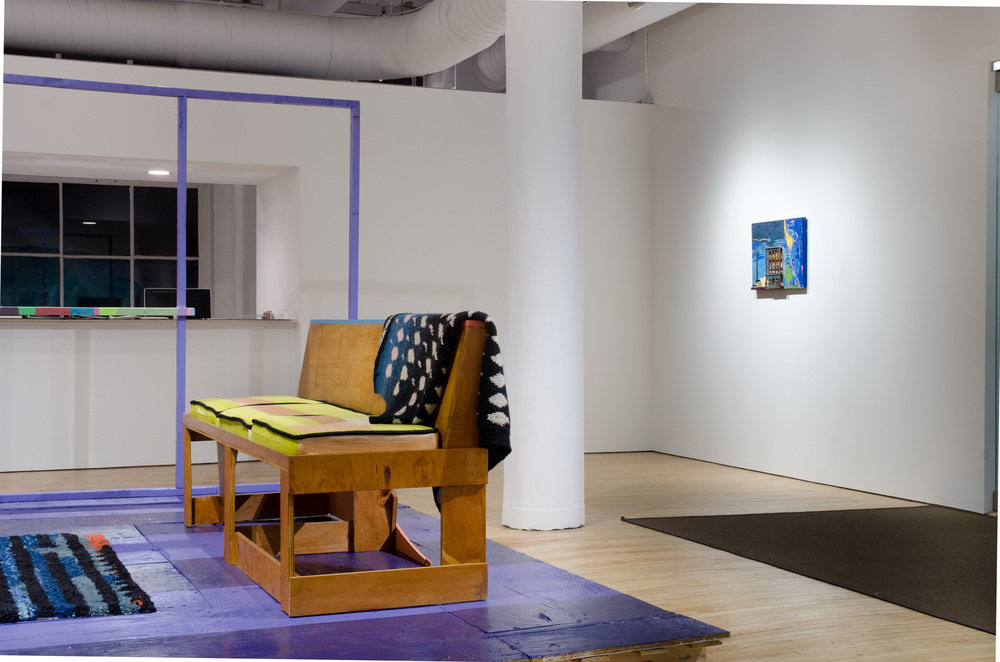
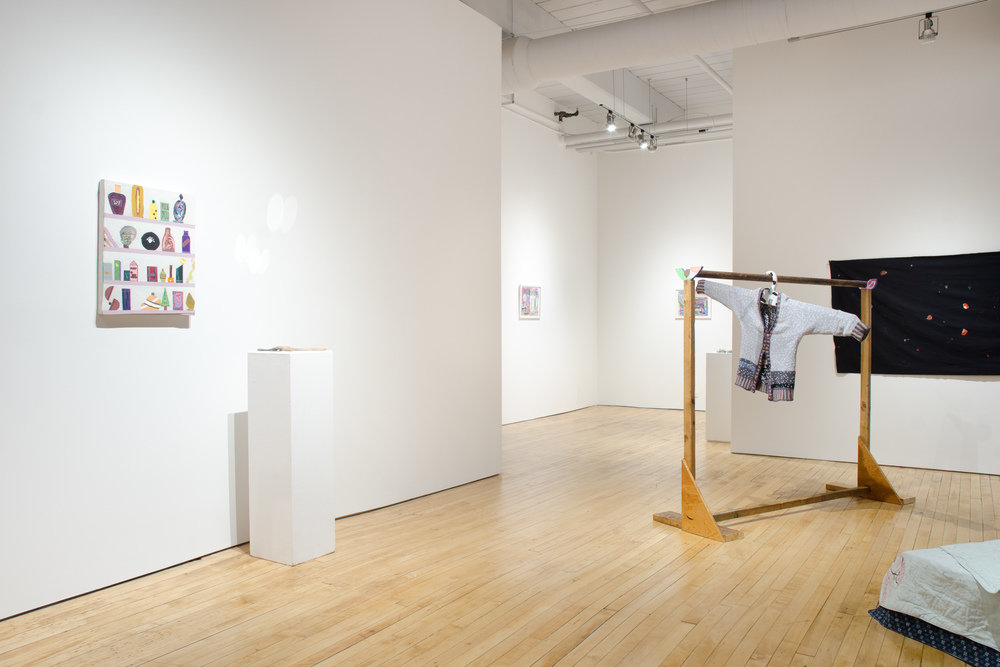
Nov 20, 2015 — Jan 30, 2016
Featuring work by: Johanna Jackson, Chris Johanson
Reception: Friday, November 20, 6–8pm
Over the past several years the husband and wife duo, Chris Johanson and Johanna Jackson (who live and work in Los Angeles, CA), have been collaborating on projects that explore total aesthetic environments at the threshold of art and design—made chiefly from recycled materials. For their Fleisher/Ollman exhibition, they will create a domestic interior utterly transforming the gallery: the floor will be fashioned from freight pallets and the walls from re-purposed wood. The freestanding, dwelling-like structure will be outfitted with furniture, textiles, ceramics, drawings, and paintings. The installation centers on the idea of the sky and the earth melding together within a domestic setting—a meditation on the sheltering love of home. The sky, created from quilted and collaged blue fabric, will be hung high then drift down to a table. The earth—a hooked rug—will flow upward toward the table becoming one with the sky. While they work very much collaboratively across various media, specific skill sets come to bear in their practice: Johanson’s expertise in jerry-rigging constructions from salvaged wood plays an important role in fabricating the armatures for furniture, for example, while Jackson’s skill in knitting and textile production is indispensable in the creation of upholstery for furniture.
Johanson and Jackson each have separate careers as well as working collaboratively. Johanson was a major figure in the San Francisco art scene in the mid-to-late 1990s, coming up alongside fellow Bay Area artists Barry McGee, Margaret Kilgallen, and Alicia McCarthy. Johanson is renowned for installations and paintings that depict the hope and despair of contemporary life as we deal with the crushing conformity of modern existence. In recent years, he has increasingly gravitated toward abstraction as he develops new vocabularies to explore the complexity of our collective condition. Maturity has also wrought a positive message in his art. The collaborative work with Jackson is emblematic of this evolution as they endeavor to transcend the art object and enter the pragmatic realm of sustainable design.
Johanson has had solo exhibitions at the Museum of Contemporary Art, Los Angeles; Mitchell-Innes & Nash, New York; Malmö Konsthall, Sweden; the Portland Art Museum, OR; Deitch Projects, New York; and the Hammer Museum, Los Angeles, among others. He has been shown in many group exhibitions and venues including the Istanbul Biennial; SITE Santa Fe; the 2002 Whitney Biennial; the travelling exhibition Beautiful Losers; Yerba Buena Center for the Arts, San Francisco; and the Institute of Contemporary Art, Philadelphia.
Before beginning in earnest on textiles and collaborative efforts with her husband, Johanna Jackson worked as a painter, appropriating imagery from graphic design and turning the iconography in on itself, creating witty and dark commentaries on consumer culture. Her recent work involves designing and knitting garments, creating abstract wall hangings, and ceramics.
Jackson has had solo exhibitions in a range of venues such as Adobe Books, the Lab, and Jack Hanley, all in San Francisco; Kavi Gupta, Chicago; and the Portland Museum of Modern Art, OR. She has been featured in group exhibitions and venues including Four Walls, the Luggage Store, Jack Hanley, the Yerba Buena Center for the Arts, and San Francisco Museum of Modern Art, all in San Francisco; Oakland Museum, Oakland, CA; the travelling exhibition Beautiful Losers; Ooga Booga and New Image Art, both in Los Angeles; and KRETS, Malmö, Sweden, among others.
Johanson and Jackson’s collaborative work has been shown at South Willard, Los Angeles; Marella Gallery, Milan, Italy; the Frances Young Tang Teaching Museum and Art Gallery at Skidmore College, Saratoga Springs, NY; and Art of this Gallery, Minneapolis, MN. They have painted several murals together in Portland, OR. In 2013, they were commissioned by the Hammer Museum, Los Angeles, to make visitor seating.
The artists and Fleisher/Ollman acknowledge Headlands Center for the Arts and RAIR (Recycled Artist in Residency), a program at Revolution Recovery, for making this exhibition possible.









